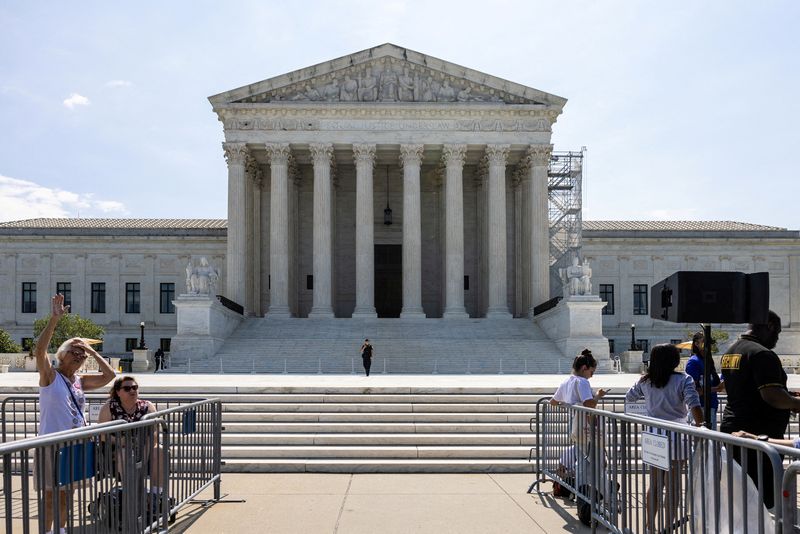The U.S. Supreme Court is expected to rule on Monday in a case involving a legal challenge to a Federal Reserve regulation on debit card “swipe fees” that would make it easier for companies to try to overturn longstanding federal rules. forces.
A lower court has rejected a lawsuit by a North Dakota convenience store challenging a 2011 rule that regulated the amount businesses pay banks when customers use debit cards to make purchases. Corner Post, a shop in Watford City, was dismissed on the basis that it did not comply with the six-year limitation period that normally applies to such cases.
The Supreme Court has set Monday as the last day to take a decision on the current term, which began in October.
Swipe fees, also known as interchange fees, reimburse banks for the costs associated with issuing debit cards. Fees are set by Visa, MasterCard and other card networks, capped by a central bank rule of 21 cents per transaction.
The question is whether it was too late for the Corner Post to file its legal challenge. The store argued that it was not bound by the six-year statute of limitations to challenge the 2011 regulations because it opened for business in 2018.
The Corner Post, backed by a variety of conservative and corporate interest groups, including billionaire Charles Koch’s network and the U.S. Chamber of Commerce, has argued that companies should have broader freedom to challenge regulations they deem illegal and burdensome.
The store argued that the six-year limitation shouldn’t begin to run until business is adversely affected — which would be March 2018, when it accepted Corner Post’s first debit card payment.
President Joe Biden’s administration, which represents the Federal Reserve Board of Governors, has threatened to adopt the Corner Post’s legal position that would “significantly expand the class of challengers” to government regulations and “increase the burden on agencies and courts.”
A group of small business associations has filed a brief with the Supreme Court urging it to maintain a strict statute of limitations that begins the moment a restriction is finalized. Allowing cases beyond this deadline would “create confusion, uncertainty and inconsistent regulatory regimes for the nation’s regulated industries and the American people that these regulations are intended to serve,” they said.
Before Congress passed the Dodd-Frank Wall Street Reform Act of 2010, which required the Fed to cap withdrawal fees, retailers paid 44 cents per transaction, making it difficult for small businesses to accept debit cards.
After the central bank fixed 21 cents per transaction, retailers seeking a much lower limit sued. In 2015, the Supreme Court upheld a lower court ruling.
In its 2021 lawsuit, the Corner Post argued that the provision violates congressional intent and is “arbitrary and capricious” under a federal law called the Administrative Procedure Act.
District Judge Daniel Traynor dismissed the case in 2022. Based in St. Louis, the U.S. The Court of 8th Circuit affirmed the decision in Traynor, prompting a Supreme Court appeal.
Last year the central bank proposed to lower the current limit to 14.4 cents per transaction.

“Gamer. Professional beer expert. Food specialist. Hardcore zombie geek. Web ninja. Troublemaker.”







More Stories
Weather Warning, Civil Defense Notice; Strong thunderstorms, hail and strong winds, affected areas
Marmolada, Erica Campagnaro and David Miotti in memory of the tragedy at mass
Azores resistance is coming back. Why this is a turning point and what it means for Italy